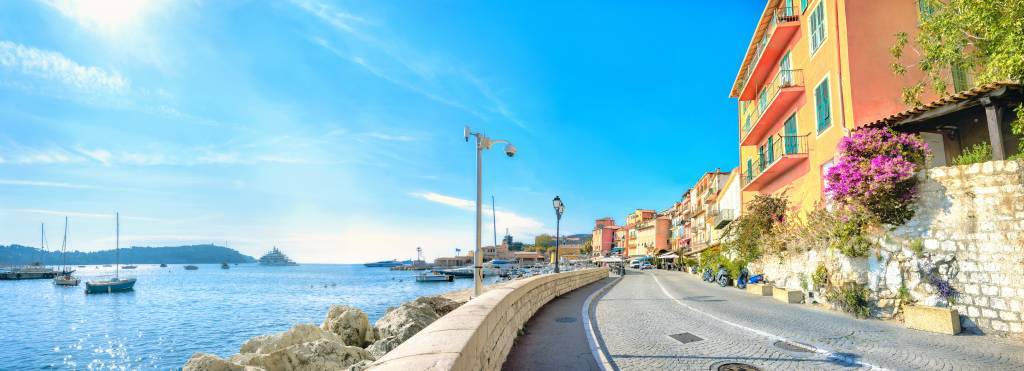
Therefore, we feel that it is important to familiarise yourself with the differences before embarking on the purchase of a French property. Here are a few pointers to help you but if you would like more information, please contact us on +44 (0) 20 7989 7777 or by email - mail@halkinriviera.co.uk
When buying a property in France, note that all contract documentation will be in French and that French text has force of law. If you require any advice concerning the nature and obligation of those contracts and also further information regarding the purchasing process itself, we would advise that you speak to an experienced solicitor familiar with the French property market and French law. We always recommend that our clients get in touch with a mortgage advisor prior to their visit so they can discuss their options. This has the advantage of providing a clear indication of what is affordable. In addition, if a mortgage has been agreed in principle, it can be quite attractive to sellers. Our team will be pleased to help with all such matters and can recommend notaries, surveyors, mortgage providers, financial advisors and tax experts.
Once you have decided on a property, the first step will be to secure it. In order to do so you will have to sign a pre-contract or reservation agreement. There are two types of contract: the ‘Compromis de Vente’ and the ‘Contrat de Réservation’.
1. 'Compromis de Vente' The ‘Compromis de Vente’ is the initial contract between the seller and the purchaser. It forms the basis of the agreement which will eventually be formalised in the ‘Acte de Vente’ drafted by the Notaire. It is therefore important to consider its terms very carefully. The ‘Compromis’ is sometimes prepared by the estate agent who will have completed a standard form, which does not always contain the correct information. Great care must be taken before signing it and in any event, legal advice must be sought before doing so. The ‘Compromis’ will in particular contain a number of conditions precedent which must be spelt out clearly in order to avoid any uncertainty. This type of condition or ‘conditions suspensives’ is extremely useful in protecting the interests of the buyer. One of the most common ‘condition suspensive’ is where a loan or mortgage is necessary for the purchase. You can stipulate the amount, duration and interest rate of the loan you require. If you are unable to obtain the loan, with the appropriate condition suspensive you may withdraw from the contract. The ‘Compromis’ is arguably the most important document and it must be read and understood fully before proceeding any further. This document can be signed in England as there is no obligation to sign it in France. 2. ‘Contrat de Réservation’ The ‘Contrat de Réservation’ is used when the transaction refers to the sale of an off-plan property.
At the same time, you will have to pay a deposit to the French Notaire appointed by the seller (you can appoint your own notaire; the two would work together and split their fees). The vendor will require a receipt that this money has been transferred. Once the ‘Compromis de Vente’ or the ‘Contrat de Réservation’ has been signed by the seller and the purchaser, either the Notaire or the agent (depending on who drafted the contract) will send the purchaser a copy of the signed ‘Compromis’ by registered post The purchaser then has a period of 7 days during which he can change his mind and not proceed with the transaction by advising either the Notaire or the agent of his decision also by registered post. This ‘cooling off’ period starts from the day next following receipt of the Notaire's or agent's registered letter (and not, contrary to popular belief, from the date when the purchaser signs the ‘Compromis’).
Acte de vente :
Approximately two or three months after the signing of the reservation agreement, the Notaire will draft the ‘Acte de Vente’, which is the transfer deed and incorporates the terms of the ‘Compromis de Vente’ or the ‘Contrat de Réservation’. Completion of the ‘Acte de Vente’ normally takes place at the notary's office. Should one party to the transaction not be able to attend completion, a power of attorney will need to be put in place enabling some other named person (often one of the Notaire's clerks) to sign on behalf of that party. Once the completion monies have been received by the notary, and both the seller and the purchaser have signed the ‘Acte de Vente’, the transaction is complete
The sale or purchase of French property may be completed by power of attorney if the seller or purchaser cannot attend completion at the notary's office in France. The power of attorney will usually have to be signed before a Notary Public before being sent to the Foreign Office where the ‘apostille’ (an official seal) will be affixed on the document by way of legalisation.
In order to speed up your house buying process, it is advisable wherever possible to get a mortgage agreed in principle before any final decision on your new property is made. This has the advantage of providing you with a clear indication of what is affordable and the fact that you have a mortgage agreed in principle is also attractive to sellers. If you have not yet spoken to a mortgage advisor or found a mortgage deal that suits your needs, please contact us so we can refer you to a Financial Advisor. For assistance in working out your mortgage, we have set up a mortgage calculator for your convenience.
This site is protected by reCAPTCHA and the Google Privacy Policy and Terms of Service apply.